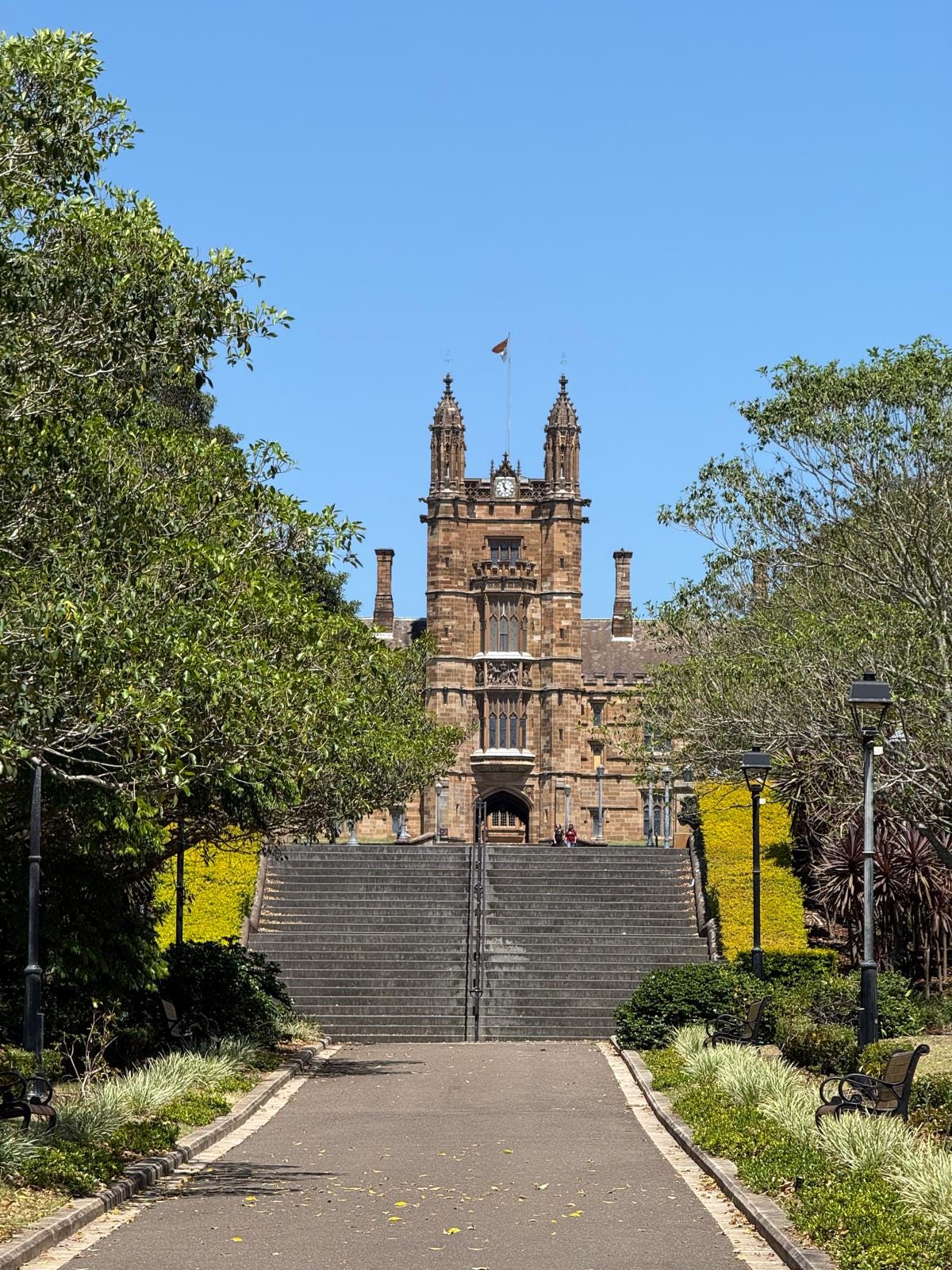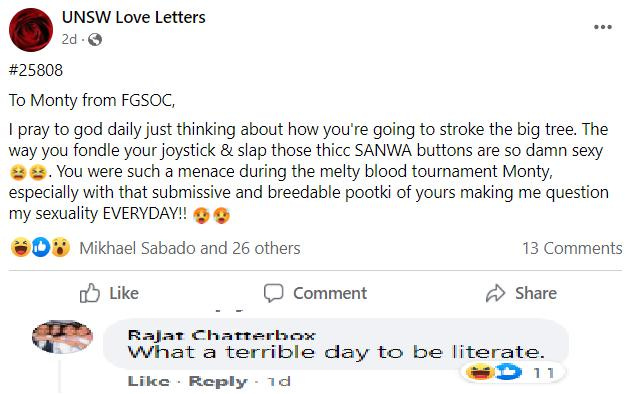a proposal for universities and trades
and why medicine and finance should join plumbing and floristry as a trade
Throughout the entirety of my four-year actuarial studies degree and beyond, I have only heard one person tell me that they were genuinely passionate about their actuarial studies degree.
Nobody does actuarial studies because they love mathematics and insurance and all the quantifiable risk management that comes along with it.
(If they do discover a love for it, it tends to happen once they’re too far down the statistical rabbit hole.)
They take actuarial studies because they read an article that said it was a well-regarded profession that made excellent money.
They take actuarial studies because they had great high school scores and knew they didn’t want medicine or law.
It can be for some, of course, but for most it isn’t a labour of love - it’s a labour of, well, preparation for future labour.
I am no exception.
And I know this isn’t unique to my degree.
Look, I really enjoyed my time at university. I’m very fortunate to have graduated what I graduated in. People have this weird tendency regard it as ‘higher ranked’ than the more popular commerce/business degrees and the overall tribulations of university have contributed to my independence and maturity, alongside a network of amazing friends, bound over shared interests.
But at the same time, I wonder about that other fact of university, the students who live across the pond - the degrees full of students who aren’t in it for the money.
The lecture halls that still maintain over 85% of attendance on week three of the semester. The student groups that continue to discuss the topic at hand, often something subjective or creative or opinion-based, into the dead of night. The degrees that you take because they are, in fact, a labour of love.
Do y’all remember when dark academia became the flavour of the month, right around the height of COVID-19 lockdowns?
While as troubled and problematic as Donna Tart’s The Secret History illustrates it, that was what university was intended to be. The pursuit of knowledge. The centre of innovation and provoking thought. An organisation to unwind and discover truth, to campaign for equity across social standings. An establishment for like-minded individuals to converse, network, design, build, investigate, experiment and discover - talking politics, business and philosophy in stuffy polos and a pretentious pout.
University trains individuals, usually the high-ranking aristocrats or noblemen, to become thoughtful, educated, well-mannered renaissance men with diverse interests and a heightened social status.
It’s a bit classist, mind you, but that’s what it was for.
Modern day universities aren’t built for that anymore.
They’re much more accessible to the general public, which is the main benefit, but it has also become a profit-seeking machine that converts free-spirited people to robotic reiterators, constructing them into a life of blue shirts and navy trousers, trapped in a fluorescent-lit cubicle, navigating the prison that is the cells of an Excel spreadsheet.
I don’t mind it at all when people choose degrees based solely on marketability.
I am okay with it being an economic transaction. We’ve all got to pay the bills somehow. It has to make sense financially.
What I despise is how disciplines focused on learning for the sake of learning, the ones with filled lecture halls, meaningful discussions and pretentious conversations that I talked about above, are marginalised and shunned.
It’s not all clinical modernity. Present-day university does still maintain some of the intellectual benefits reminiscent of its good-time era.
As much as we hate to admit it, the people within a degree are often quite similar to each other - and again, as classist as this sounds, given the same age range, the people who go to university tend to think differently to those who do not. It is still a congregation of similar ideas.
In my case, this didn’t manifest in the form of people in my degree (see actuarial studies case above), but in the form of communities that aren’t related to education and learning. I owe a massive ordeal of my personal development to the folks I met at the university-based video game clubs, online avatars and meme channel contributors turned into life-long friends.
Plus, a lot of people do their sobering up over university.
I knew a lad from The Netherlands who said that in Europe, it was rather uncommon to start working directly after finishing an undergraduate degree. Most people continued onto a postgraduate program with the intention to better grow up, or if you had enough money, go for a one-year sabbatical before doing so.
The reasoning for this is that at the ripe age of twenty-one, there is simply no way you’ve matured enough to be on the workforce - not on the skill or expertise level, but the maturity level.
You have yet to craft your independence. You have yet to establish your likes and dislikes. You have yet to pave your way in the world. And while your thirties-and-beyond are still way ahead of you, it helps to do a bunch of soul-searching in your university era where you aren’t chained to a desk, keyboard and husband/wife who has different aspirations in life.
I uh… can’t find any evidence that what he said is true, but I think you get the idea. Most university degrees do not teach the subject at hand, but are simply a qualification that proves, broadly speaking, that you know how to learn and are suitable for a life of office work.
Again, this isn’t a bad thing.
But to me, it does lack something.
It’s honestly more than fine if your passion happens to be a socially-acceptably lucrative degree, but I’m willing to bet that for most people (who have passions, at least), that is far from the case.
Alas, here’s my proposal!
There will be two distinct streams of tertiary education.
Trades and University.
(I am fully aware that both of those already exist. Hear me out.)
Trades will be what university is today.
Job-oriented. Hands-on. Practical to a fault. Grounded in nothing but employability, profit-maximisation and creating well-oiled cogs for the capitalistic system we live in.
Engineering is a trade. Medicine is a trade. Law is a trade. Finance is undeniably, without a doubt, a trade.
The same applies to traditional trades; think plumbing, electric works, floristry, information technology, real estate, stockbroking, etc.
Basically, anything that has a direct and obvious line towards employment and for the vast majority of people, is not something that people are overwhelmingly enamoured by - it is a Trade.
It’ll have some government support, I suppose, but probably through loans as opposed to scholarships.
The purpose of taking a Trade is to have a skill which you can readily trade time for money, and that’s all there is to it. You know exactly what you’re signing up for.
Trade will be a program designed solely to raise your employability factor and give you the skills necessary to get paid well in your chosen field.
If Trade eats up the majority of present-day university and trade subjects, what will this new-world University consist of?
University will include all the things that create culture.
Art, humanities, gender studies, history, philosophy, literature, anthropology, musicology, cultural studies, linguistics, creative writing, theology, sociology.
Research subjects in the domains of science, mathematics and engineering can take refuge here too - for the people dedicated to discovering more about the universe we live in.
They are the disciplines that nourish the mind and soul, that build the artistic legacy that differentiates man from beast, even if they don’t offer a clear path to a paycheck.
With its natural lack of cash flow, the government will need to support these streams generously, carefully choosing which individuals and scholarships should be sponsored.
And it’s through this careful investment in the promising passion of the aspiring, that a country can spread its cultural and artistic legacy.
Again, a little pretentious, but I do think we should return university to what it once was (but with the availability it has today) - an establishment where men and women can rise to aristocrats. A locale to enhance life philosophies and shape a new world view. An environment where intellectual conversations are had and exceptional work is born. A network of renaissance men and women, educated and self-aware, pulling off that dark academia aesthetic but preferably without the icky pridefulness that comes with it.
Importantly, this distinction makes it so that Trade and University are two entirely different pursuits.
You go into Trade knowing full well you’re choosing it for income purposes, and that you don’t have to love, but just tolerate it.
You go into University knowing full well that it’s a labour of love. Acknowledging that once you come out, you have the right, reason and responsibility to contribute to an ecosystem much greater than yourself.
I know it’s really just two of the same thing with different names attached to it, but honestly, calling something different names helps ease off that disgusting disapprovingness of “why would you waste your time with a *insert not profitable* university degree”.
(Furthermore, I think it would be super interesting if everyone had to do University before engaging in Trade.)
Reading back on everything I just wrote, I realise that what I’m really campaigning for here isn’t the realignment of tertiary education, but a shift in the psyche of what composes a successful society (and how the government, or some central body, is a key player in making this happen).
Funding for creative programs. Grants for research in both humanities and science. Subsidies for community cultural initiatives. Sponsorships for students who show passion in these fields. Building an economy that gives at least some financial support to those dedicated to building a vibrant legacy, like how nobility in the past kept painters housed and well-fed to create masterpieces in their manors.
While science and technology and math and engineering grads are the ones who build incredible tools and create big power in our economies - it is the arts and culture and humanities folk who give identity and meaning to what we do.
And between you and me, I would love nothing more than to see more support for them.







